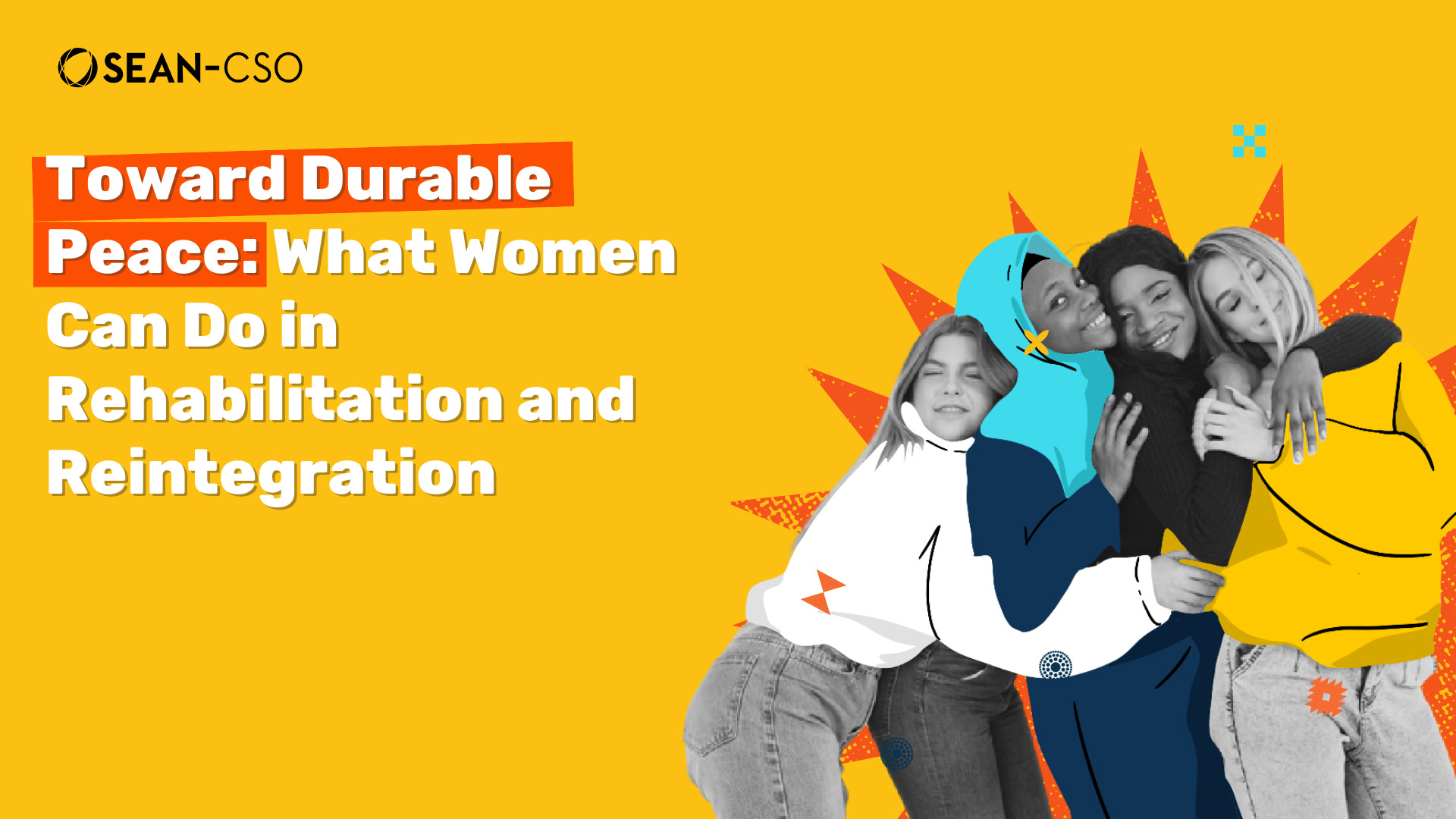Some women are lost in the fire. Some women are built from it. – Michelle K. Some
The discussion of women’s roles in ending conflicts and achieving peace is not new. In 1995, the Fourth World Conference on Women was held in Beijing, and it catalysed women’s activism for peace and security (Anderlini, 2007). Although emerging, the ‘women and peace’ theme has not found its heart within academia. Anderlini (2007) records that only a handful of academicians have put effort into the theme, and even fewer academic sources have focused on it. Among them are:
- Arms to Fight, Arms to Protect: Women Speak Out About Conflict (1995) by Caroline Moser;
- Women and Peacebuilding (1999) and Women and Peacebuilding (1999) by Susan McKay and Dyan Mazurana;
- Women at the Peace Table: Making a Difference (2000) by Sanam Naraghi Anderlini;
- Women, War, and Peace (2002) by Ellen Johnson-Sirleaf and Elizabeth Rehn; and
- Women, Peace, and Security by the UN Secretary-General (2002)
These studies have been developed into initial “prescriptions” on involving women in ending conflicts and achieving peace. Several best practices have then concluded that women have virtues that will be undeniably effective in the field.
In this article, we will learn about those virtues and see that once they are well-applied, Michelle K. Some’s quote is accurate.
What Women Bring to the Table
Rehabilitation and Reintegration of offenders are complex processes that require compassion, empathy, and a deep understanding of the social dynamics at play. Women—who are most definitely present in the process—bring a unique set of virtues and qualities that can be incredibly effective in Rehabilitation and Reintegration. What are they?
- Empathy and Compassion
It is not like men do not have empathy or compassion, but studies have shown that women are more open to showing empathy and compassion to others compared to men. Unfortunately, this is perceived as being weak, whereas in reality, Rehabilitation and Reintegration, being empathetic and compassionate, may lead us to a strong understanding of the emotional and psychological struggles faced by the offenders. Moreover, offenders often find it difficult to express their feelings, doubts, and regrets without fear of being judged. Only compassion can help us with this (UN Women, 2022).
2. Nurturing and Caregiving Role
Women often take up the central caregiving role in their families and communities. Their nurturing qualities foster the well-being of offenders, particularly children and vulnerable people. Within the Rehabilitation process, this role is essential in helping offenders rebuild their lives when they reintegrate into society. In addition, the maternal instinct protects the vulnerable from re-radicalisation (UN Women, 2022).
3. Mediation and Conflict Resolution Skills
Years of experience navigating family and communities have trained women to possess a certain set of skills in addressing social tensions that may occur in Reintegration, especially in communities that may be hostile to offenders. Women are good at reading facial expressions and gestures and are culturally more sensitive. Their ability to bridge parties and ease tensions makes them excellent mediators (UN Women, 2022).
4. Social Cohesive
Often, they take part as central figures in communities, such as mothers, teachers, and community organisers. Women are the ones that hold society together. Ensuring reintegration is successful depends on society’s ability to accept offenders. Women are crucial in bringing society to a united front (Holmer & Shtuni, 2017).
5. Emotional Resilience and Strength
We cannot deny that some women are offenders, and some must bear the consequences of radicalisation. In both, women must go through hardship, trauma, or marginalisation. These equip women with strength that will assist them in the Reintegration process. Simultaneously, when others face similar experiences, women’s reliance is reflected through their willingness to help those facing the Reintegration process (UNDP, 2016).
Concrete Evidence
Let’s see what the academicians’ prescriptions are all about.
In Somalia, women in the UN Women Empowerment and Reintegration Program supported former female combatants and their families through emotional and practical caregiving, ensuring their successful reintegration into the community (UN Women, 2022).
In the Philippines, women leaders played a key role in the Mindanao Peace Process. They used their mediation skills to negotiate the reintegration of former fighters into their communities, preventing further violence and fostering peace (UN Women, 2022).
In Tunisia, women ex-combatants and local female leaders played a crucial role in reintegrating other women and children associated with extremist groups by rebuilding community ties and creating opportunities for social interaction and mutual support (Holmer & Shtuni, 2017).
In Nigeria, women ex-combatants who Boko Haram had radicalised became strong role models in the rehabilitation programs. Their resilience helped guide other women and youth away from radicalisation by showing that recovery was possible (UNDP, 2016).
So, to put Michelle K. Some’s quote in context:
“Some women are lost in radicalisation. Some women are built from radicalisation.”
References
Anderlini, S. N. (2007). Women Building Peace: What They Do, Why It Matters. Lynne Rinner Publisher.
Holmer, G. & Shtuni, A. (2017). Special Report – Returning Foreign Fighters and the Reintegration Imperative. United States Institute of Peace. https://www.usip.org/sites/default/files/2017-03/sr402-returning-foreign-fighters-and-the-reintegration-imperative.pdf
United Nations Development Programme (UNDP). (2016). Preventing Violent Extremism through Promoting Inclusive Development, Tolerance and Respect for Diversity – A development response to addressing radicalization and violent extremism. https://www.undp.org/sites/g/files/zskgke326/files/publications/Discussion%20Paper%20-%20Preventing%20Violent%20Extremism%20by%20Promoting%20Inclusive%20%20Development.pdf
UN Women. (2022). Final Narrative Report – Preventing Violent Extremism: Integrating Gender Perspective (Global, Jordan and Pakistan) – 1 February 2019-31 January 2022. https://www.unwomen.org/sites/default/files/2022-10/Preventing-violent-extremism-Integrating-gender-perspectives-en.pdf
SEAN-CSO provides a platform for civil society organisations in Southeast Asia to network and share resources. Through this network, members can support each other, share knowledge, and coordinate efforts to address the region’s social challenges. In doing so, SEAN-CSO contributes to strengthening the voice of civil society at both regional and international levels.

